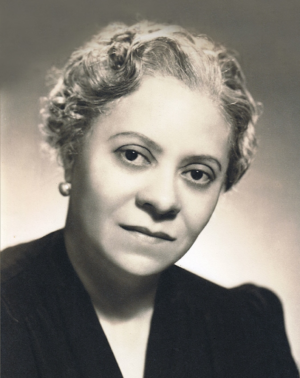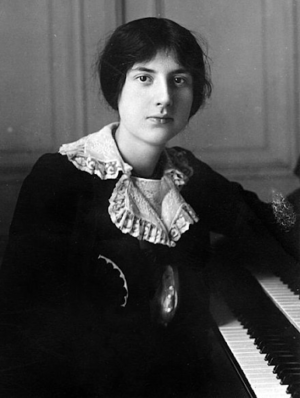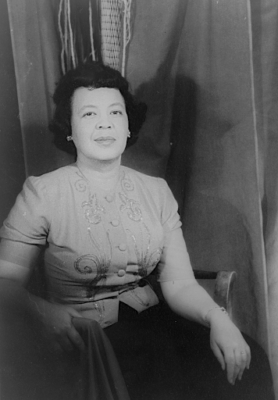Let’s Take a Quick Trip to the Salon…. And No, We’re Not Talking About Getting Your Hair Done
Join us at the salon before Bluebeard’s Castle | Four Songs! No, we’re not talking about getting your hair done, we’re talking about salon concerts!
Salons became popular in 17th and 18th century France, and it was a place where people could gather to discuss literature, poetry, philosophy, theology, and ideas, often accompanied by food and drink. The French word “salon” literally means “large room,” suggesting a spacious room where people might withdraw after a meal for entertainment or conversation.
Until the 1850s, most music was experienced in small, intimate venues. Keeping with the spirit of the 18th-century intellectual salon, the musical salon was a place where like-minded people could gather to enjoy performances, conversation, and refreshments. The Salon Concert was particularly popular in the 19th century, a format which would have been entirely familiar to composers like Schubert, Chopin and Liszt.
A piece like Alma Mahler’s Four Songs would absolutely have been performed at a salon, and in that spirit, we are having a pre-show salon concert before every performance of Bluebeard’s Castle | Four Songs! Before the theater opens, we will welcome pianist Yukiko Oba for a brief program of music by women composers who were contemporaries of Alma Mahler. Purchase a snack and something from our custom cocktail or zero proof menu, and let this salon provide you with a broader perspective on the music, art, and poetry of the time. Don’t have a ticket to the show? That’s ok! The lobby will be open to everyone. Keep reading to learn more about the incredible composers we’ll be highlighting.

Clara Schumann
Clara Schumann was a virtuosic pianist, composer, and teacher. Regarded as one of the most distinguished pianists of the Romantic era, she had a 61-year concert career. She was a child prodigy, and was trained by her father. She began touring at age eleven, and was successful in Paris and Vienna, among other cities. She married the composer Robert Schumann, and the couple had eight children. Schumann composed solo piano pieces, a piano concerto, chamber music, choral pieces, and many songs. Most of Schumann’s music was never played by anyone else and largely forgotten until a resurgence of interest in the 1970s. Today her compositions are increasingly performed and recorded. Schumann wrote that “composing gives me great pleasure… there is nothing that surpasses the joy of creation, if only because through it one wins hours of self-forgetfulness, when one lives in a world of sound.”
Suggested listening: 3 Lieder, Op. 12 – 2. Liebst du um Schonheit

Florence Price
Florence Price was an American classical composer, pianist, organist, and music teacher. Price is noted as the first African-American woman to be recognized as a symphonic composer, and the first to have a composition played by a major orchestra. Price composed over 300 works: four symphonies, four concertos, as well as choral works, art songs, chamber music and music for solo instruments. Though her training was steeped in European tradition, Price’s music is uniquely American. She pulled from her southern roots and frequently used the music of the African-American church as material for her arrangements, as well as the rhythmic language of more traditional spirituals. In 2009, a substantial collection of her works and papers was found in an abandoned dilapidated house on the outskirts of St. Anne, Illinois, which Price had used as a summer home. These consisted of dozens of her scores, including her two violin concertos and her fourth symphony, previously unknown and unpublished.
Suggested listening: Symphony No. 1 in E Minor

Lili Boulanger
Marie Juliette “Lili” Boulanger was a French composer and sister of the noted composer and composition teacher Nadia Boulanger. Boulanger suffered from chronic illness, and died of intestinal tuberculosis at the age of just 24. Despite her short life, Boulanger left behind some of the most stunning compositions of the Symbolist movement. Boulanger’s talent was apparent at the age of two, when Gabriel Fauré, a friend of the family, discovered she had perfect pitch. In 1912, Boulanger competed in the Prix de Rome, but during her performance she collapsed from illness. She returned in 1913 at the age of 19 to win the composition prize for her cantata Faust et Hélène, becoming the first woman to win the coveted prize. Her last years were a productive time musically as she labored to complete works. Her death left unfinished the opera La princesse Maleine, on which she had spent most of her last years.
Suggested listening: D’un matin de printemps

Margaret Bonds
Margaret Bonds was an American composer, pianist, arranger, and teacher. One of the first Black composers and performers to gain recognition in the United States, she is best remembered today for her popular arrangements of African-American spirituals and frequent collaborations with Langston Hughes. Bonds was born in Chicago in 1913, where her family was deeply involved in the civil rights struggles of the time. Bonds connected her father’s political activism with her mother’s sense of musicianship, doing much to promote the music of Black musicians in her lifetime. Her own compositions and lyrics addressed racial issues of the time. Among Bonds’s works from the 1950s is The Ballad of the Brown King, a large-scale work for chorus, soloists, and orchestra, which was eventually televised by CBS in 1960. As a pianist, she performed with the Chicago Symphony Orchestra, a historical moment, marking the first occasion a Black performer had performed with them as soloist. In addition, many well-known arrangements of African-American spirituals were created by Bonds.
Suggested listening: Spiritual Suite
Amy Beach

American composer Amy Beach was the first successful American female composer of large-scale art music. Her “Gaelic” Symphony, premiered by the Boston Symphony Orchestra in 1896, was the first symphony composed and published by an American woman. She was one of the first American composers to succeed without the benefit of European training, and one of the most respected and acclaimed American composers of her era, writing symphonic works, chamber music, choral works, solo piano music, and art song Beach’s writing is mainly in a Romantic idiom, but in her later works she experimented, moving away from tonality, employing whole tone scales and more exotic harmonies and techniques. Despite her fame and recognition during her lifetime, Beach was largely neglected after her death in 1944 until the late 20th century. Efforts to revive interest in Beach’s works have been largely successful during the last few decades.
Suggested listening: Dreaming Op.15
Catch compositions by these extraordinary women when you join us for the pre-show salon before Bluebeard’s Castle | Four Songs, a night of gripping theater you’ll never forget!
